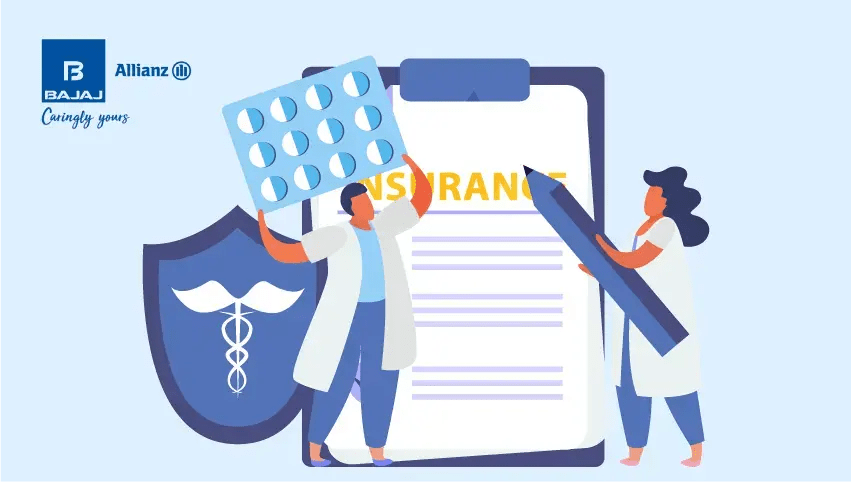Dengue fever can cause severe flu-like symptoms, including high fever, severe headache, joint and muscle pain, and rash. In severe cases, dengue fever can lead to haemorrhagic fever or dengue shock syndrome, which can be fatal. With the increasing prevalence of dengue fever in India, it is essential to understand how health insurance can help cover the costs associated with this illness.
Health insurance is an essential component of any financial plan, providing protection against unforeseen medical expenses. However, not all health insurance policies cover dengue fever. Therefore, it is important to understand the coverage offered by different health insurance providers and the conditions attached to such coverage.
What is Covered Under Dengue Health Insurance?
Here is a list of coverage benefits of dengue health insurance:
· Medical treatment
Dengue health insurance provides coverage for medical treatment, including hospitalization expenses, doctor consultation fees, diagnostic tests, and medication costs.
· Hospitalization
In most cases, the policyholder needs to be hospitalized for at least 24 hours to avail of the coverage.
· Outpatient treatment
Dengue health insurance also covers the cost of outpatient treatment. This includes expenses incurred on diagnostic tests, doctor consultation fees, and medication costs for mild cases of dengue fever that do not require hospitalization.
· Sum insured
The amount of coverage varies from insurer to insurer and depends on the sum insured chosen by the policyholder.
· Additional benefits
Some insurers also offer additional benefits such as daily cash allowances and coverage for ambulance charges.
Apart from hospitalization expenses, dengue health insurance also covers the cost of outpatient treatment. This includes expenses incurred on diagnostic tests, doctor consultation fees, and medication costs for mild cases of dengue fever not requiring hospitalization.
What are the Exclusions of this Health Policy?
While dengue health insurance provides coverage for medical treatment, it also has certain exclusions policyholders should be aware of. These exclusions vary from insurer to insurer and may include the following:
· Pre-existing diseases
If the policyholder is suffering from dengue fever or any other
pre existing disease at the time of purchasing the policy, the insurer may not provide coverage for the same.
· Non-allopathic treatment
If the policyholder opts for non-allopathic treatment for dengue fever, such as homeopathy or Ayurveda, the insurer may not provide coverage for the same.
· Age limit
Some insurers may have an upper age limit for availing dengue health insurance coverage.
· Geographical limitations
Some insurers may provide coverage for dengue fever only in specific geographical locations where the disease is prevalent.
Things You Should Know Before Buying Dengue Health Insurance
Here are a few things you should know before buying dengue health insurance:
· Included or Add-on?
Not all
health insurance policies cover dengue fever. Some insurance providers offer dengue coverage as an optional add-on, while others provide it as part of their standard policy. Therefore, it is important to check the policy documents and understand the coverage offered before purchasing a health insurance policy.
· Waiting Period
Most health insurance policies have a waiting period of 30 days before coverage for dengue fever becomes effective. This
waiting period is intended to prevent people from purchasing insurance after contracting the illness and claiming benefits immediately. Therefore, it is important to purchase health insurance well in advance of the dengue season to ensure coverage is in place when needed.
· Sub-Limits
Even if a health insurance policy covers dengue fever, it may have sub-limits on the amount payable for treatment. This means that the policy may only cover a portion of the total medical expenses incurred. Therefore, it is important to understand the sub-limits associated with any option amongst the
types of health insurance .
· Pre-Existing conditions
Some health insurance policies exclude coverage for pre-existing conditions, including dengue fever. Therefore, if an individual has a history of dengue fever, it may be challenging to obtain coverage for the illness. It is essential to check the policy documents and understand any exclusions before purchasing a policy.
· Outpatient Treatment
Some health insurance policies cover outpatient treatment for dengue fever. It can include diagnostic tests, consultations with doctors, and medication. However, outpatient coverage is typically subject to sub-limits, and not all policies include this benefit.
· Cashless Hospitalization
Many health insurance policies offer
cashless hospitalization facilities for the treatment of dengue fever. This means the policyholder can receive treatment at a
network hospital without having to pay upfront. The insurance provider settles the bill directly with the hospital, subject to the policy limits and conditions.
· Claim Process and Documentation
To claim benefits for dengue fever, policyholders must follow the claim process and submit the required documentation. The process may vary between insurance providers, but typically involves notifying the insurer of the claim, providing medical bills and reports, and completing claim forms. It is essential to follow the claim process accurately to ensure the claim is processed promptly.
· Cost of Dengue Health Insurance
The cost of dengue health cover varies between insurance providers and policy types. The premium for dengue coverage is typically higher than the premium for a standard policy. However, the cost of dengue coverage may be worth the investment considering the high medical expenses associated with this illness.
Conclusion
Dengue fever can cause significant financial strain on individuals and families. Therefore, it is important to choose a health insurance policy providing comprehensive coverage for dengue fever and other
vector borne diseases, and also be aware of the policy's exclusions.
Insurance is the subject matter of solicitation. For more details on benefits, exclusions, limitations, terms, and conditions, please read the sales brochure/policy wording carefully before concluding a sale.
 Service Chat: +91 75072 45858
Service Chat: +91 75072 45858


